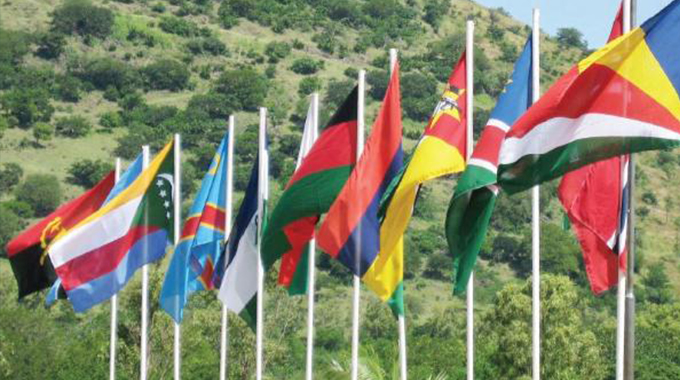Sadc decries slow ratification of Protocol on Industry

Business Editor
ONLY five member states out of 16 have ratified the Southern African Development Community (Sadc) Protocol on Industry since its endorsement by regional Heads of States and Governments in 2019, amid concern over slow implementation of agreed policies aimed at transforming the region’s economy.
Industrial development is at the centre of Sadc’s regional integration agenda alongside competitiveness and market integration.
This makes ratification of the Sadc Protocol on Industry critical to the achievement of regional economic integration and eradicating poverty within the Southern African region. Zimbabwe is yet to ratify the protocol.
Experts say embracing regional economic integration has the potential to yield higher value benefits such as increased regional growth rate, an improved share of manufacturing value-added goods across the region, high uptake of high-technology production approaches, an increase in manufactured exports, and an improved share of Sadc exports to global markets, which would impact positively on the share of industrial employment, and total employment.
In order to attain these goals, Sadc member States need to scale up collaboration for effective results on common problems and issues.
“The success of the Industry Protocol depends on the involvement of all Sadc member States to take advantage of the economies of scale that accompany a high number of member States involved in executing activities associated with the Protocol,” the Sadc Secretariate said in a latest update.

“As of December 2022, only five Member States had ratified, namely Angola, Botswana, Namibia, Seychelles, and Mauritius. The remaining work includes the signing and ratifying of the Protocol Industry.”
A Protocol is a legally binding document committing member States to the objectives and specific procedures. For a Protocol to enter into force in the Sadc region, two-thirds of member States need to ratify it, giving formal consent and making the document officially valid. Any member States that did not initially become party to a Protocol can accede to it later.
As such, the ratification of the Sadc Protocol on Industry is closely aligned with the Regional Indicative Strategic Development Plan (RISDP 2020-2030), which further seeks to ensure that regional industrialisation-related initiatives are front-loaded.
On a broader scale, these interventions feed into the long-term Sadc Industrialisation Strategy and Roadmap (SISR 2015-2063), which also aims to promote regional economic growth and deepen regional integration through structural transformation.
To enable this, Sadc Protocols have been put in place to help provide codes of procedure and practice on various issues, as agreed by member States.
“Following the approval of the SISR and the consideration of industrial development issues in existing Protocols, Sadc deemed it necessary to have a Protocol on Industry that will help to enhance the level of industrial development both nationally and regionally,” said Sadc.
“The Protocol on Industry will act as a binding instrument that will entrench and give legal effect to the SISR in the Sadc Region.
“Further, the Protocol will give the legal mandate to the Sadc Secretariat to coordinate and provide oversight to implement regional industrial development measures, including the SISR.”
According to the bloc, the ratification of the Protocol has to be followed by implementation, and if done effectively and efficiently, certain benefits can be expected.
During its meeting held from 14th – 16th August 2019 in Dar es Salaam, Tanzania, the Sadc Council of Ministers approved the Protocol on Industry, documented and recommended it to the Summit for final approval and signature signing. The Summit endorsed the Protocol on Industry and eleven Heads of State and Government in August 2019 signed it.
To emphasise the significance of the ratification and, in the process, urging member States to ratify the Protocol on Industry, Sadc has announced plans to hire a consultant who will be responsible for promoting the benefits of ratifying the Protocol












Comments